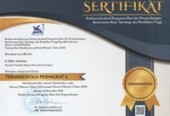THE TRAJECTORY OF INDIGENEITY POLITICS AGAINST LAND DISPOSSESSION IN INDONESIA
Abstract
Keywords
Full Text:
PDFReferences
Araghi, F., and Karides, M. 2012. “Land dispossession and global crisis: Introduction to the special section on land rights in the world-system”. Journal of World-Systems Research, 18(1).
Bahar, S., A.B. Kusuma, and N. Hudawati, penyunting. 1995. Risalah Sidang BadanPenyelidik Usaha-Usaha PersiapanKemerdekaan Indonesia (BPUPKI), Panitia Persiapan Kemerdekaan Indonesia (PPKI), 28 Mei 1945–22 Agustus 1945. Edisi III, Second Edition. Jakarta: Sekretariat Negara Republik Indonesia.
Down to Earth. 2002. Stophuman rights violations against peasant farmers! Down to Earth No. 52, February 2002. Available at: http://www.downtoearth-indonesia.org/story/stop-human-rights-violations-against-peasant-farmers. (retrieved: Dec 23, 2016).
Gellert, P. K. 2010. “Extractive regimes: toward a better understanding of Indonesian development”.Rural Sociology. 75(1).
Harvey, D. 2003. The new imperialism. Oxford: Oxford University Press.
Laujeng, H. 2010. “Hukum Kolonial di Negara Merdeka (Colonial Law in Independent Country)”. Naskah Belum Diterbitkan.
Moniaga, S. 2007. “From Bumi Putera to Masyarakat Adat: A long and confusing journey”, in Davidson, J. and Henley, D. (eds.) The Revival of Tradition in Indonesian Politics: The Deployment of Adat from Colonialism to Indigenism. Oxford and New York: Routledge.
Muttaqien, A., Ahmad, N., dan Wagiman, W. 2012. Undang-Undang Perkebunan: Wajah Baru Agrarische Wet(Plantation Law: New face of Agrarische Wet). Jakarta: ELSAM.
Peluso, N. L, and Vandergeest, P. 2001. “Genealogies of the Political Forest and Customary Rights in Indonesia, Malaysia, and Thailand”. Journal of Asian Studies, 60.
Peluso, N. L. 1992. Rich Forests, Poor People: Resource Control and Resistance in Java. Berkeley, CA: University of California Press.
Quijano, A. 2000. “Coloniality of Power, Eurocentrism, and Latin America”. Nepantla: Views from South, 1(3).
Rachman, N. F. 2011. The Resurgence of Land Reform Policy and Agrarian Movements in Indonesia. Berkeley: University of California.
Rajagopal, B. 2003. International Law from Below: Development, Social Movements and Third World Resistance. Cambridge: Cambridge University Press.
Robison, R., andHadiz, V. R. 2004. Reorganising power in Indonesia: The politics of oligarchy in an age of markets. London: RoutledgeCurzon.
Ruwiastuti, M. R. 2000. ‘”SesatPikir” Politik Hukum Agraria, Membongkar Alas Penguasaan Negara atasHak‐hakAdat’.NoerFauzi (Peny.). Yogyakarta: Insist Press, KPA danPustakaPelajar
Terkini, H., 2014. harian regional. [Online] Available at: http://www.harianregional.com
Buletin, L., 2017. Berita Terkini. [Online] Available at: http://www.buletinlokal.com [Accessed 1 february 2017].
DOI: http://dx.doi.org/10.28946/slrev.Vol1.Iss1.13.pp122-142
Refbacks
- There are currently no refbacks.

Sriwijaya Law Review (SLRev) ISSN: 2541-5298 | e-ISSN: 2541-6464 is licensed under a Creative Commons Attribution-ShareAlike 4.0 International License.






















